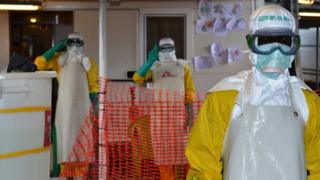Old Rocks
Diamond Member
A new case of an American with ebola being flown back to the US.
American With Ebola Virus Being Flown to NIH Bethesda-Chevy Chase MD Patch
OK, I want to hear a new chorus, four part harmony, of 'Oh, woe is me, we are all going to die' from out fruitloop rightwingnut brigade. They did it so beuatifully last time. Come on, guys and gals, I know you won't dissappoint us.
American With Ebola Virus Being Flown to NIH Bethesda-Chevy Chase MD Patch
OK, I want to hear a new chorus, four part harmony, of 'Oh, woe is me, we are all going to die' from out fruitloop rightwingnut brigade. They did it so beuatifully last time. Come on, guys and gals, I know you won't dissappoint us.




